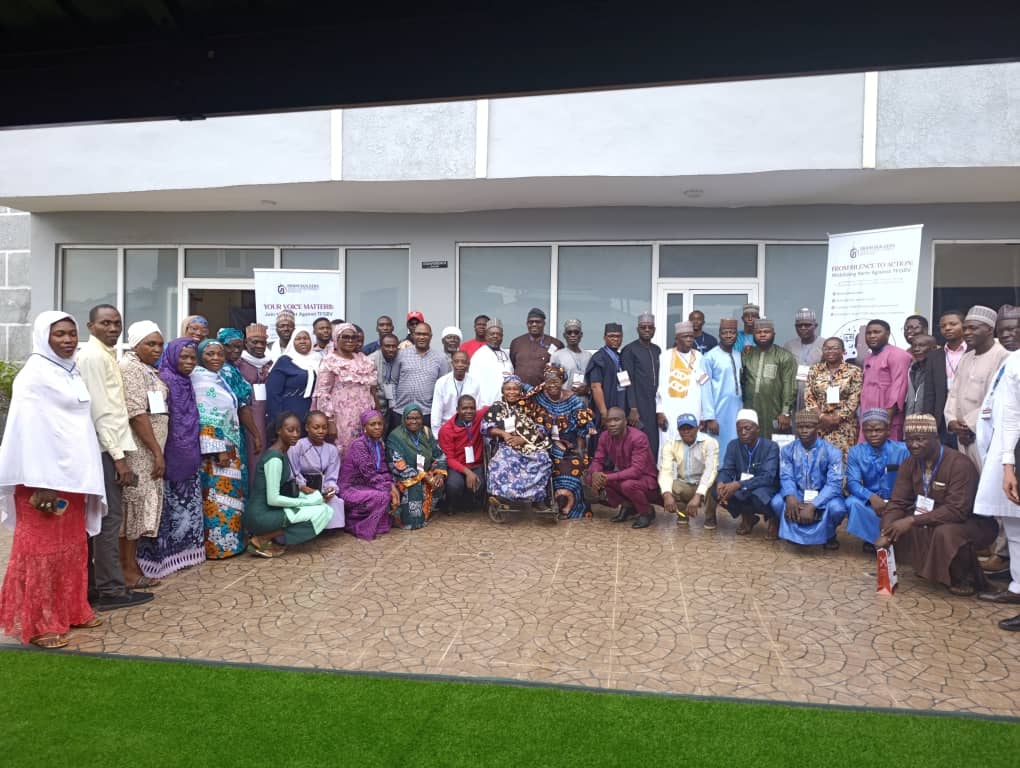[ad_1]
The brutal murder of Hafsoh Lawal, a young student lured and killed through social media in Ilorin, has triggered renewed calls for coordinated action against Technology Facilitated Gender Based Violence (TFGBV) in Kwara State.
The call was made during a high-level dialogue themed Break the Silence: Say No to Technology Facilitated Gender Based Violence, organised in Ilorin by the Brain Builders Youth Development Initiative (BBYDI).
The event brought together civil society actors, religious leaders from both Muslim and Christian communities, women and youth groups, persons with disabilities, and other critical stakeholders who gathered to chart a united response.
SPONSOR AD
Supported by Urgent Action Fund Africa, the dialogue was described as the first of its kind in the state, with a focus on tackling the growing threat of online gender-based violence.
Executive Director of BBYDI, Nurah Jimoh-Sanni, who was represented by Ruth Adeosun, the organisation’s Finance and Policy Officer, described the forum as a necessary step toward reclaiming safe spaces for women and girls in both physical and digital environments.
“This is not just another gathering. It is a response to a painful reality that deeply shook Ilorin and many others across the continent,” she said.
She recalled the tragic death of Hafsoh, describing it as one among many unreported or overlooked cases of digital abuse. She stressed that the issue goes beyond Ilorin and affects countless young women and girls across Nigeria and Africa.
“Her story is not an isolated case. Across Kwara and beyond, young women and girls are being harmed in ways our systems are still failing to address,” Adeosun said.
She announced the launch of a new initiative titled From Silence to Action, a rapid response project designed to transform dialogue into tangible, community-driven solutions.
Stakeholders at the event resolved to co-create a Charter of Commitments for Ilorin, a document that outlines practical and measurable steps for families, religious bodies, government agencies, and civil society groups in the fight against TFGBV.
To drive implementation, a TFGBV Response Committee was inaugurated to coordinate interventions, monitor progress, and ensure accountability beyond the dialogue.
Participants emphasised that no single group can tackle the crisis alone. They called for joint efforts involving faith-based institutions, law enforcement agencies, schools, homes, and digital platforms.
“The tools that facilitate harm can also be transformed into tools for protection, education, and empowerment, but only if we act,” Adeosun noted.
She urged community leaders to break harmful silences, reject dangerous myths, and build systems where survivors are believed, protected, and supported.
“Our success will not be measured by the beauty of our speeches, but by the safety of the next girl logging onto her phone,” she said.
She also called for stronger political will and public commitment to end the menace and secure justice for victims.
The dialogue ended with a collective pledge to move Ilorin, and Kwara State at large, from silence to action, driven by the memory of Hafsoh Lawal and the pressing need to protect every woman and girl from tech-enabled abuse.
Do you want to share a story with us? Do you want to advertise with us? Do you need publicity for a product, service, or event? Contact us on WhatsApp +2348183319097 Email: platformtimes@gmail.com
We are committed to impactful investigative journalism for human interest and social justice. Your donation will help us tell more stories. Kindly donate any amount HERE




